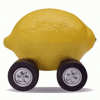
Which Ancient Grain for a Starter
I have an established einkorn starter which takes a long time to double at room temperature, around 19 hours, 6 hours at 28c. I experimented with different feeding ratios and temperatures and its doing ok. The problem is that I am having no luck baking an einkorn sandwich loaf which isn't like a brick. I have watched countless tutorials but I think the einkorn flour available in the US is very different to the one I get in the UK. I have the Doves whole wheat version which I sift with a fine sieve, I use the bran elsewhere. My dough is a hard waxy lump that does not stretch at all and doesn't rise very much with no oven spring.
I now have khorasan, emmer, einkorn and spelt. I would like to make a multigrain ancient grains loaf and wondered which of the flours provides the easiest starter. I would run a test to see but I'm powering through the flour which isn't cheap so I wondered if anybody knew


I don't have answers but want to talk about the flour a bit. I get ancient grain flours from a local water mill (in the US). I sift out the bran, although I may turn it into a scald or soaker and add it back that way.
None of these flours, including einkorn, have produced a "hard, waxy" lump. Instead of not stretching, my doughs have always been excessively extensible and my problem is to bring more elasticity to them.
I have only made doughs with 50% einkorn or emmer to date. Although I said they were very extensible, in the early stages the dough can break easily while being stretched. It can take some time - through a series of rests and stretch-and-folds - to build a dough that stretches a long way without snapping.
Because of the extensibility, it's been helpful to include the salt during initial mixing. This tends to counter the slackness of the dough to a degree.
With einkorn I have found that it takes a long time to absorb the full amount of water. I have learned to hold back some of the water and to work more of it in over time. This isn't the case for emmer flour.
Since your einkorn flour seems to behave differently, and since I've never built up a starter consisting only of an ancient grain, I don't have anything to offer about your starter question. In general, I've found it easier to work with emmer than einkorn and I like its flavor.
TomP
100% einkorn behaves very differently for me. I do an autolyse and keep back 150g of water which gets added after the dough has sat for a while. My loaf is also chocolate brown and not the lovely golden brown I see in recipes.
I have only found wholegrain einkorn. In the US they can get AP or Bread Flour Einkorn. Our flour does tend to be very dark rich in minerals.
Your bread looks very nice to me. Appreciate it for the unique characteristics.
I sift out the bran with a fine sieve to get ap.
Does it have to be an ancient grain? Like einkorn? Come to think of it most grains are very old. Unless it's a new variety concocted in a lab today even "normal" wheat is very old. Durum is older than Khorasan and yet because it's still popular today it's not usually thought of as ancient. While khorasan is more niche so it is thought of as ancient. I digress... what I mean is, is there any particular reason it has to be a certain variety?
I once bought some Maris Wigeon wholemeal flour and had a strong starter going in 3-4 days. Now it may have just been the luck of the draw but this flour just turned into a starter. My method was to mix the flour and water at 100% hydration then leave it for a day to a day and half till you get that initial burst of energy. Gave it another feed and it went quiet for about a day and then came to life again. Gave it another feed and it matured nicely like a strong starter. Well timed feed and kept warm this flour was excellent.
https://www.shipton-mill.com/products/organic-stoneground-wholemeal-flour-706?_pos=2&_sid=dd480bbe7&_ss=r
I'm looking at the ancient grains as I'm diabetic and they don't spike my sugars as much and have more protein. Einkorn especially. I haven't tried or looked at durum wheat but I will do now. My goal is to have an ancient grain mix of flours.
But I would also think the fact that you're baking using wholegrain and sourdough that would also help. These ancient wheats do have pretty much the same carbs than modern wheats I would have thought but the gluten differs. Try the durum and see how you respond to it. The fact that it is an ancient grain might not be the deciding factor. Also you can add to the blend non wheat flour that has higher protein and lower carbs. Up to 20% and you shouldn't notice too much difference in the way how the dough handles. As for Maris Wigeons i'm not sure if you'd class it as an "ancient wheat.
Hope you find what you're looking for.
P.s. if you do decide to add durum wheat to your flour blend then I suggest you go for rimacinata which is durum semolina re-milled into a a finer flour.